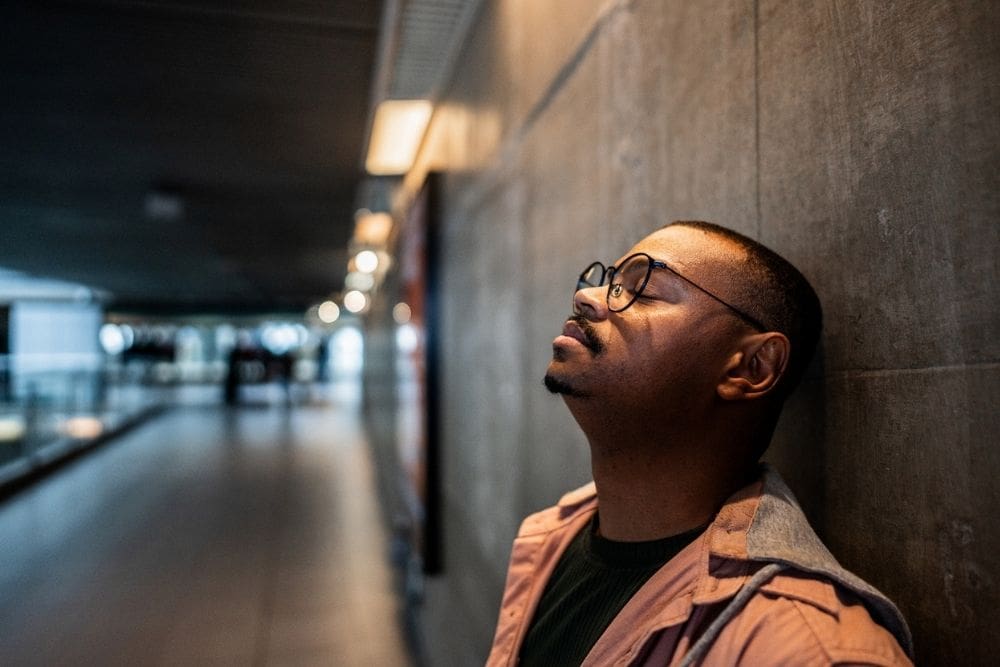Living with anxiety can feel like being trapped in a constant state of unease. Your mind races with worries you can’t seem to turn off, your body stays tense, and you may find yourself exhausted from the weight of it all. To quiet the noise, many people turn to substances like alcohol or drugs. At first, it might seem like a temporary escape. But over time, using substances to cope with anxiety can create a dangerous cycle—one where the very thing that brings relief ends up causing more pain.
Signs of Anxiety You Shouldn’t Ignore
Anxiety isn’t just about feeling nervous before a big event—it can show up in many ways and impact nearly every part of your life. Common signs include:
- Constant worry. You find yourself overthinking situations or fearing the worst, even without clear reasons.
- Restlessness or irritability. Your body feels on edge, and you may snap at others without meaning to.
- Racing thoughts. Your mind never slows down, especially at night, making it hard to rest.
- Physical symptoms. Headaches, muscle tension, sweating, stomach problems, and a racing heart can all be linked to anxiety.
- Difficulty concentrating. Anxiety makes it hard to focus, leaving you overwhelmed and scattered.
- Sleep problems. Trouble falling or staying asleep only makes the cycle worse.
If these symptoms sound familiar, you may already know how overwhelming anxiety can be. And when it gets to that point, it’s easy to look for relief wherever you can find it.
How Anxiety and Addiction Are Connected
When you’re in the grip of anxiety, alcohol or drugs may seem like an escape hatch. A drink might help you relax in social situations. A pill might quiet racing thoughts. At first, these substances seem like they “work.” But the relief is temporary, and it comes with a cost. When you have both conditions, this is known as a dual diagnosis or co-occurring disorder, which is more common than you may think. According to the Substance Abuse and Mental Health Services Administration (SAMHSA), there are roughly 9.2 million adults in the United States who have a co-occurring disorder.
Here’s how the cycle between anxiety and addiction develops:
- Anxiety creates distress. Your mind and body feel overwhelmed, and you crave relief.
- Substances provide temporary calm. Alcohol slows down your nervous system. Certain drugs numb or distract you from anxious thoughts.
- The brain starts to rely on substances. Instead of learning healthier coping tools, your brain begins to associate drinking or using with relief.
- Anxiety and addiction feed each other. Over time, substances can worsen anxiety symptoms, making you feel even more out of control. This drives more substance use, deepening the cycle.
This is why untreated anxiety often goes hand-in-hand with addiction. Without addressing both, recovery feels incomplete.
What to Look Out For
If you’re wondering whether anxiety and substance use are becoming a bigger issue, here are some warning signs:
- Using substances to “self-medicate.” You reach for alcohol or drugs whenever anxiety feels too strong.
- Needing more to feel the same relief. Tolerance builds, and one drink or pill turns into several.
- Avoiding situations without substances. You feel like you can’t handle social gatherings, work stress, or daily tasks without using.
- Increasing anxiety between uses. Instead of helping, substances eventually intensify anxious thoughts and physical symptoms.
- Struggling with relationships or responsibilities. Addiction and anxiety both strain work, school, and personal life.
If these patterns sound familiar, it may be time to seek help.
Treating Dual Diagnosis in Atlanta
The good news is that anxiety and addiction don’t have to define your life. With the right support, you can break free from the cycle and discover healthier ways to cope. Anxiety can make it even harder to stay sober—but this isn’t about weakness or willpower. Both conditions are powerful, and you deserve support that treats them together, not separately.
At Twin Lakes Recovery Center in Monroe, near Atlanta, we take a holistic approach to dual diagnosis care. Through compassionate assessments and evidence-based treatments, we help you address the root causes of both struggles so you can find lasting stability, healing, and hope.
To learn more about our programs and services, please contact us today!




